Have a good study method it is essential if you want to study better, with less effort and with better results.
Unfortunately at school they do not teach us to learn or to study, with the consequence that we always do it very much rough and disorganized.
Today I'll explain how learn to study effectively, eliminating stress and anxiety related to exams and results, and how to spend less time studying it using it better:
- Why you study and why you don't have to learn what you study.
- Your study method in 7 steps.
- Managing exam anxiety.
- Train your mind and study by stopping studying.
What I show you will also be useful if you have to be prepared for a test, a competition or if you want to help friends, relatives or children to study better. And in my opinion it will be very useful even if you work!
This is one practical guide, so read it carefully, but turn it into a program to try in the next few weeks.
You have to experiment to see what works for you and what to adapt, considering my goal is to help you create your study method.
And you have to give you time to try and get used to the changes.
Ah, speaking of changes: I created a quick change test.
It will allow you to understand if today you are capable to change.
Start quiz Continue Complete the form below to see the results Leave your name and email to subscribe to my newsletter and receive the test results. Your name: Your email: I consent to the processing of my data in compliance with the privacy regulations. Show results
Let's get started right away!
Why you study and why you don't have to learn what you study

Let's start with the simplest thing: why do you study?
The main problem is that in most cases we study out of duty, not out of real interest. The reasons can be many, but in particular:
- You need that "piece of paper" to do a certain job.
- Your parents expect you to go to that school and get that degree.
- The school you have to do is compulsory, so you can't choose!
- You want a title to feel important or because "everyone has one".
- You study something because you like it and want to know as much as possible.
When you ask yourself how to improve your study method, it is possible that it is for two reasons: or you don't like studying and therefore you want to do it with less effort, wasting little time, or you love what you study but encounter difficulties.
Which usually means you don't like some of the subjects 😀
The problem of motivation is the main theme in building a study method: if you don't care what you study, it is normal that it will be difficult and tiring.
The secret to being motivated does not lie in rewards, results and goals, as some usually want to delude us, but in happiness.
You'll always have the motivation you need if you do something you're happy to do.
Think about the things you love, that you enjoy: do others have to motivate you? Or do you do them on your own initiative and with enthusiasm?
If for you studying is just a burden, a "necessary" duty, the motivation will be absent and this will make you work hard, always.
Especially if for you studying means taking a positive grade or passing an exam, and you don't care about what you are learning.
Of course, you are not choosing some of the things you study (I really don't like our education system!) And you are forced, or forced, to study them.
If you want to do it with less effort, however, while also having fun (considering that you have to deal with it anyway!), Then here is the best advice in the world: learn to love all subjects.
To do it you have to to put enthusiasm even in things that you have not liked so far, devote more attention and commitment than usual, change your attitude.
And you have to learn one fundamental thing: there are no good and bad subjects. There are people who have dedicated their lives to studying things that you and I would consider very boring (like earthworms for example).
It is subjective, there is no good and bad, but just "I like it and I don't like it," which is a totally different thing.
A method, after all, is a "technique" if you like, something almost mechanical. I'll tell you how to study effectively but any trick doesn't hold up if what you study doesn't interest you.
Instead of studying, you have to want to understand.
The last part of the guide tells you how to get there.
Ever since I learned to understand instead of studying, for me there is hardly any book that is boring (I said almost!) and above all I know how to get out of everything something interesting.
The secret to studying well is not to study less or better, but with curiosity, passion and love. Try to understand, find out more, because interest is the secret.
That said, let's build your study method.
Are you a selfish person?
Answer the 7 questions in my selfishness test.
It will allow you to understand if (and to what extent) you are a selfish person.Start quiz Continue Complete the form below to see the results Leave your name and email to subscribe to my newsletter and receive the test result. Your name: Your email: I consent to the processing of my data in compliance with the privacy regulations. Show results
Your study method in 7 steps

Creating a study method is not very different from learning how to concretely accomplish a goal.
What we will see now, therefore, you can adapt it not only to class assignments or a subject to be given at the University, but whatever results you want to achieve.
Step 1: Program and discipline
First of all you need it a program, a roadmap.
You must always have an end date, a time within which to complete your study. A goal with no deadline is not a goal.
Never choose the date of the exam or assignment: you must complete your work before that day, to have time to review what you have studied.
Also you have to identify how many pages you have to study and divide them in the days you have available.
If you have a test in class on March 31st and you have to study 100 pages for preparations, and today is March 1st, consider finishing studying your pages by at least the 25th, so that you have 4/5 days to review everything.
We therefore have 25 days (from 1st to 25th March) and 100 pages to study: in total you have to do at least 4 pages a day.
Your program must therefore consist of 4 pages every day, from today (hypothetical March 1st), until the 25th.
Consider two important aspects: often you will not have a single subject to study (especially if you attend middle school or high school), so the pages of one are added to those of others.
While this makes your schedule more complex, you must always plan how many pages you will study of each topic per day, starting from the final date and always leaving you time to review.
Second aspect: better to finish the pages to study today first, than to have too many not to do them all.
Maybe 4 pages seem few, but your program it must be simple.
Always simplify your life.
For this you have to plan your study long before the exam, as soon as you know what to study and the date you will have to finish.
If every day you just need to study only 4 pages, that matter it will become less heavy and demanding. And if you work calmly, over time, even less tiring.
Each day you can decide whether to anticipate the pages scheduled for the next day. This you will decide from time to time, but your schedule must be designed to do everything with simplicity, not in a hurry.
You don't have to finish studying first, but do it without stress and calmly.
Once you've created your roadmap, you have to work on it every day. Soon I'll give you some advice on when and how to do it.
La discipline it is essential: you have to get used to doing what you have established every day. Unexpected events can happen, but they're not a good reason not to follow a schedule.
Many ask me: what if I skip days? Retrieve them, redistribute the remaining pages on the available days, review your study plan.
But don't go voluntarily. It is essential to develop constancy and continuity.
For this take all available days and he works little, but every day. This way you run less risk of not following the schedule and having to continually revise it.
I repeat: simplify your life.
POINT 1: create a roadmap by dividing the pages to study for each available day. Always leave 4/5 days to repeat everything at the end.
You can update your study plan every day, but make a commitment to stick to it fully.
Step 2: Graduality (starting point)
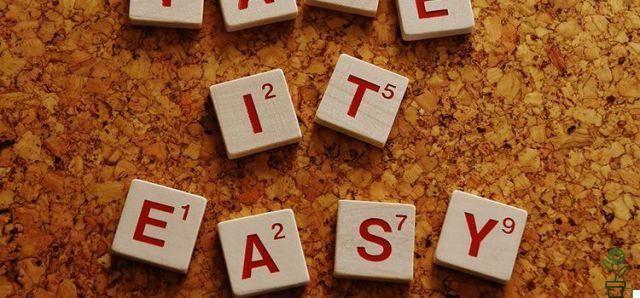
A key point for the success of a study program is the graduality.
In the example above, studying 4 pages a day might be easy, but if you are used to, or used to, studying only 1, it means that you have to work a lot more than normal!
Graduality means two things: start from the condition you are in, then gradually increase it.
If you usually study 4 pages a day and need 20 instead, don't start today with 20. It will be heavy and you will not succeed, losing the urge and compromising your schedule.
Today study 4. Tomorrow 5, the next day 6 e gradually increase it, one a day, until you get to study 20.
You always have to start from the current situation, understand how much you study today and start improving this time if you need it.
Obviously the program must take into account that you need a week to get to study all the pages you would like each day, and then divide them in order to consider that at the beginning you will do less and then you will work more.
Also you have to organize yourself to do more and more, little, but more and more.
Whether it's one more page a day, or add half an hour of study this week and half an hour the next.
The secret is to start from where you are (without judging whether it's good or not!) And gradually build up to the level you need to get to the exam or class test with all the syllabus finished.
Always start from the current situation: for example measure how many hours can you study today, how long before you need a break, how many pages can you read in an hour.
You can monitor how many you can review, how much you need to make notes or mind maps (if you use this system). In short, first of all observes, because only in this way can you gradually improve.
Also consider a second advantage: in the next exams you will not have to start from scratch, because your studying skills will be enhanced, and with them your concentration too.
STEP 2: start with your current habits and skills and improve them every day, consistently but gradually and simply.
If you have any doubts on how to apply this point do not hesitate to leave me a comment and I will gladly help you.
Now that you have a plan, built gradually, let's see how to make it easier to stick to.
Step 3: Alternate (variability)

Avoid studying until you can't take it anymore and you have to rest. Instead, divide your day into "blocks" of time and alternate your activities.
Decide if it is better for you to do 30 minutes of study or 1 hour (you don't have to go to the limit, but stop when you could still continue) and then change.
Alternate a moment of study with a break to read a book you like, a novel, or watch a video of mine, or take a walk, do a homework assignment.
For example, I am writing this guide but I stop often (usually every 30 minutes) to wash the dishes, go to the garden to water the tomatoes, answer the emails I receive, talk to my brother and other things that I constantly change.
Staying fixed for hours on a task not only it depletes your resources more quickly, but it also quickly lowers your attention.
And you end up making it extremely boring what you need to do. This is one of the reasons why we end up procrastinating something by putting off all the time.
At least until you are forced, or forced, to do so by the time that is running out 😉
You could also alternate half an hour of one subject with another and then a completely different activity, maybe physical and not just mental.
Obviously, if you alternate study with a period of relaxation, do not make the break last 2 hours and do not do things that distract you or tire you instead of letting you rest.
We will talk more about this shortly.
STEP 3: often vary your activities and plan your time alternating different things, without ever getting to the point of having to stop because you can no longer study.
Does it make sense to continue your relationship as a couple?
Answer my test questions to find out.
It will allow you to understand if your relationship has the characteristics to last or not.
Step 4: Environment
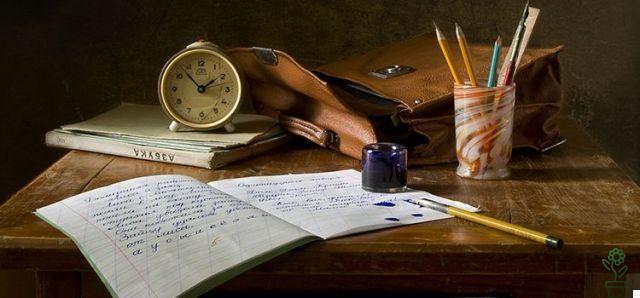
An important aspect is the environment in which you study.
First create a place where you can study without other people distracting or interrupting you. It doesn't matter if it's your room, a library or an outdoor bench.
The important thing is that it is congenial, you must like and feel comfortable. Furthermore, I recommend that you dedicate it exclusively to studying.
Do not carry out other activities, as if that place, that bench, that table, that desk, is an "altar" in which to devote yourself only to studying.
Another important aspect is the times: establish those in which you are best to study, those in which you have the most energy and clarity.
And organize your time giving priority to the study and not the rest. You have to build this order in time management yourself, voluntarily.
In my opinion it doesn't matter if you study better in the morning, afternoon or evening: it matters that the time is right for you, the best times at your own pace.
Take each point as a starting point and a guideline, but remember that each of us is different, we have different habits and inclinations, so adapt this guide to you.
Obviously plan the time according to what I have explained to you before and organize it in order to reach your daily study goals calmly.
This is a key element: the calm, as well as all positive emotions, are the best allies for studying well.
We will see it better at the end of this guide.
Another important thing is limit distractions in your study environment.
Some idea:
- No televisionand on or nearby.
- Disconnect the phone from social media.
- Close wathsapp to avoid other distractions.
- Close the door and study in rooms silent.
- If those who live with you come to disturb you, lock the door or forbid entry while you study.
- Keep the tidy table, empty with a few tools (now let's see which ones!).
Always remember the basic rule: make your life easier.
If in addition to these ideas you realize that there are situations that distract you while you study, eliminate them. And if you need any suggestions to do so, leave a comment and I'll try to help.
Finally, where you study, there must be you and what is strictly necessary.
On the table that there is only the book what are you studying, pens or pencils, highlighters, if you need, something to take notes (a neat notepad or a computer) and any other tools you need to study.
Nothing else.
Confusion and disorder are bitter enemies of concentration.
Make your study environment simple, pleasant and uncluttered.
STEP 4: Study in an environment reserved for this, tidy, without distractions, where you can concentrate easily.
Step 5: Develop Interest
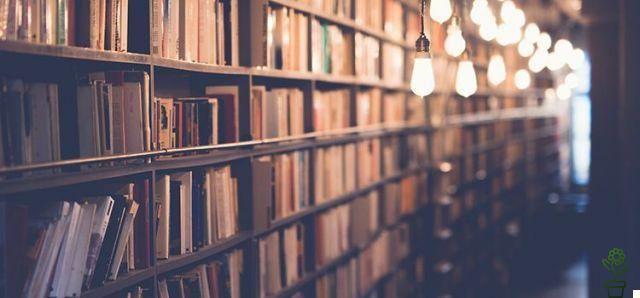
One aspect that is almost always underestimated is the interest in what you study. Learn More.
The broader your knowledge of a subject, the easier it is to connect what you are studying with other subjects, with other subjects, and each connection also helps memory.
Apart from those subjects in which you have to remember exactly a name or a date, memorizing is not a good study method. Better understand.
For the past 10 years I have been self-taught books on psychology, sociology, spirituality, philosophy, social sciences, personal growth.
I have read over 100 books in just over a year, and today I still read a lot.
What gives me confidence is not that I remember exactly what an author says and what is written in a certain book.
The strength lies in understanding, knowing and make your own a theme, a topic.
If you just study the book in front of you, you'll never get there.
Here's what to do:
- Study the textbook on which you will take your exam.
- Identify the main topics e do an internet search for each one.
- Read at least a second book chosen by you (or recommended by your professors) on the same topic as the main one. You don't have to "study" it, but read it.
- Talk to your colleagues or classmates on that issue, to find out their opinion.
- Rework what you read: explain what you have learned to your parents, your friends, on a forum or blog.
Why is this important?
Why broaden your knowledge and increase your mastery of a subject. You don't have to learn a lesson, but understand it.
Reading more books, even if it is a relaxed reading, creates connections with the book you are studying, fixing ideas and concepts better so that you become more master of it, or mistress.
Discover sites and blogs that talk about these issues, perhaps in a more interesting way, search for videos on Youtube, give space to popular books on the subject that deal with it in a simpler way.
Compare yourself with others, and above all teaching what you learn, transforms a notion into knowledge.
If I have to repeat what I read, I forget it easily. If I explain it to you, in my own words, I reflect on it, I analyze it, then I don't "repeat", but I learn, I understand, I make my own.
And at that point it's not that you remember it, it's that you know it, it has become your acquaintance and you never forget it.
Yes, the school system in which we are educated does not lead to this way of studying, and it is also for this reason that hardly anyone likes school.
If you follow this approach, however, you will see that you will study with less effort, much more interest and better results. For you, not for the professors 😉
STEP 5: deepen what you study, read more texts on each topic and teach what you learn by reworking it in your own words. This is the most important point.
Step 6: Continuous checks
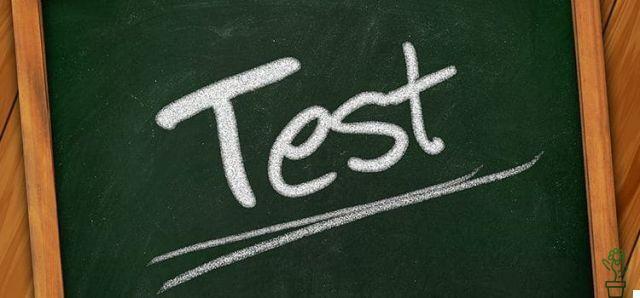
If you are studying for a test, whether it is an assignment or an oral exam, you must not only prepare yourself but also know how to evaluate your preparation.
You must always be able (this is the very essence of self-esteem) to determine if your preparation is good or not.
You must be able to establish if there are shortcomings, limits, shortcomings. The more you learn to value yourself objectively and sincerely, the more immune you become from fear of the judgment of others.
To do this you need to verify your work and its results.
You could ask questions from friends or classmates or college colleagues, you could ask a professor about do a mock exam.
You could search resources on the internet to test your skills, you may want to purchase test books to gauge how well you understand a certain topic.
If you share it, that is, if you teach what you have studied, as I have suggested, the questions of those who listen to you, their doubts, their ideas they might highlight the limits of your knowledge.
You could also use the professor's previous exams, questions from others before you, to see if you know the answer to each question.
Another very useful approach could be to turn what you study into an answer.
If you read a chapter in your book, you might identify what question the author answered to write it. And page after page make a list of all the questions that come out while you study.
A check is knowing how to answer all these questions, and this type of work will also be very useful to you in the final repetition phase, in the last days of your study program.
What matters is that you are capable of constantly monitor how well you are studying, if you are really understanding what you are studying and identify immediately where you are having difficulty to remedy immediately.
You don't just have to have a well-organized schedule, but know how to constantly evaluate if it produces good results and how to correct it if you are not satisfied, or satisfied, with them.
This not only allows you to work better, it offers you greater security about your study and greater confidence in your abilities.
STEP 6: Continuously check the quality of your study and immediately address any shortcomings or limitations of your preparation.
Step 7: Memory and quick reading techniques, mind maps, notes and everything in between
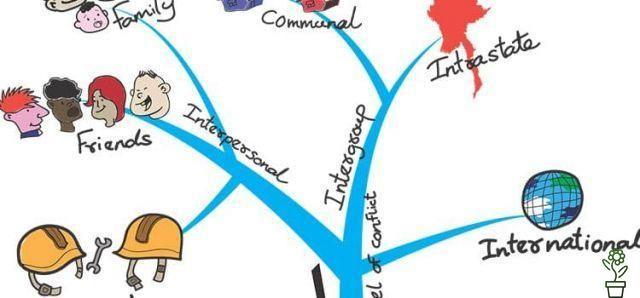
Some people base their study method only on memory.
Basically you don't want to learn something, just remember the answers to the professor's possible questions.
This is why I have never been interested in memorization techniques: they are mechanical and are based on everything but the importance of knowledge.
I could remember a book by heart without being able to understand its meaning.
There are professionals who know their subject well, but have no sensitivity and competence, just a bunch of notions stored in their brains.
The same goes for fast reading techniques.
They can be useful, I even studied them a bit, and then I realized that living running, reading a thousand books, always under pressure, is wrong.
This leads to continued dissatisfaction. I want to help you become happy as well as improve the way you study.
Also some prefer to take notes while studying, others make mind maps, still others write summaries (a friend of mine might publish an encyclopedia of summaries!).
I think these kinds of approaches are very subjective. As I see it, however, they are processes aimed at remembering as much as possible, not so much at understanding and mastering something.
POINT 7: techniques are not a study method but tools that are sometimes useful, but don't focus only on them to learn how to study well.
If you feel comfortable using them, but remember that the secret of an effective study method is not a technique, but an approach, and after explaining how to manage exam anxiety, I'll explain just that.
Let's recap all the steps of your study method
Before proceeding, let's do a quick summary of all the steps you need to create your study method:
- STEP 1: Create a roadmap dividing the pages to study for each available day. Always leave 4/5 days to repeat everything at the end.
- POINT 2: start with your current habits and skills and improve them every day, with constancy but in a gradual and simple way.
- POINT3: often vary your activities and plan your time alternating different things, without ever getting to the point of having to stop because you can't stand studying anymore.
- POINT 4: study in a environment reserved for this, neat, without distractions, where you can concentrate easily.
- STEP 5: Learn more about what you study, read more texts on each topic and teach what you learn by reworking it in your own words. This is the most important point.
- STEP 6: Continuously check the quality of your study and immediately address any shortcomings or limitations of your preparation.
- POINT 7: techniques are not a study method but tools that are sometimes useful, but don't just focus on them to learn how to study well.
Managing exam anxiety

Anxiety is an emotion that arises when we focus on something we cannot control.
By reading my guide on emotional independence you will understand how our emotions depend on our thoughts. Not from what happens, then, but from how you live it.
Exam anxiety arises when you focus on what is not up to you: the outcome of the exam!
You can better organize your time, study well and prepare well, following the advice you have read so far.
But the outcome of the exam, or of the test in class, it won't be up to you anyway.
You may not be able to answer some questions, or even if you do it well the teacher may not like what you say, or the way.
Not to mention that the professor may not have sympathy for you, or be in a bad mood over personal matters.
Right or wrong, one fact remains clear: the final outcome depends only in part on you, and in part on people and situations that you cannot control.
If you focus on the end result, you feed anxiety and fear.
Instead, you have to keep your mind focused on what is under your control, and if you notice, the method I have shown you today goes in this direction.
It's not just about memorizing better or using techniques like summaries or mind maps (if you notice, I didn't even mention these points!).
I leave these tips to others 😉
What I propose to you is a different approach to studying, because if it is true that you cannot control the outcome of an exam, you have total power over how you prepare.
The deepening, the mastery of a subject, of a topic, the interest you develop and the knowledge you acquire are the most important thing.
And it is totally in your power.
Not to mention that anxiety grows when the stakes increase: the more the exam is important, the more the grade counts, the more vulnerable you will be to this emotion.
I've written a guide as rich as this one, in-depth and specific to performance anxiety. Read it as we conclude by finding out how studying by stopping to study 😉
Discover the 5 Steps to Living INTENSIVELY a life Full of Emotions and Find You Well and in Balance in Every Situation (without Feeling Bad anymore) Training Your "Emotional Independence”, Even If You Don't Believe That Things Enough May they Be Different ...
... If You Don't Trust Yours Capacity or Yours Character It Doesn't Help You!
Train your mind and study by stopping studying

To study there are two possible approaches: you learn the things you need to pass an exam, an assignment, an interview, a test, or, second chance, you interested in knowing and understanding something.
The first approach is typical of those who "study", those who go to school, participate in "compulsory" or necessary training processes.
Of those, to be clear, you do for a title, a promotion, points and so on. The motivation is different from what you study.
The second approach is what makes the difference and allows you to study, without studying.
At school, I remember, one thing was to "study" a chapter of the book, that is, to read it, memorize it and repeat it to yourself so as not to forget something that the teacher could have asked for.
It was one thing to "read" the same chapter: in that case you expected the professor not to question you about what you read, so you didn't understand and remember almost nothing.
Or you didn't read it at all 😉
You have two options: continue to study or start learning and understanding.
It doesn't matter if you are forced, or forced, to take an exam or stay behind a school desk for other years. If it touches you, you can decide how to do it.
The method I showed you today stems from a different view not only of what it means to study, but also of human nature.
Almost everyone around us is convinced that if they do not force you to study, you will not do it, you will remain ignorant, you will not find a job, your life will be a disaster.
Summerhiil's Happy Boys is a book that I recommend you read, because it tells the experience of a school where studying was not compulsory.
But almost everyone, after a few months of freedom, began to take an interest in many subjects and wanted to learn.
You can choose to lose your best years on books, knowing that most of what you study today, you will not remember tomorrow, or you can learn, become curious, or curious, and live happier.
There is a different attitude in my study method, the desire to understand, understand, arricchirti through the study of a subject.
In fact, I invite you not to study "a book", but a theme, a topic, ranging as much as you can from the ideas of one author to those of many others.
When I started to get passionate about coaching I read a book in which I found a very meaningful sentence, the meaning of which was that by reading a lot about a certain topic, you can become a great expert on it.
If you read a history book on the Middle Ages it is one thing. You will never be expert, or expert.
If you read several books, if you go to look for documentaries on that historical period, if you read sites and blogs that explore other aspects of the Middle Ages, it changes a lot.
And if, as you learn, you start to expand more and more what you read, you deepen not only the history but every other subject of the Middle Ages (religion, science, nutrition, language, culture, geography), then it's a whole different music. .
You may find that studying is beautiful, knowing is passionate and fun. You may learn, as has happened to me and so many others, that school is by no means the home of knowledge.
This place is your mind, if you let it wander and it is enriched with healthy curiosity.
And if you share everything you learn, you write on it, you make it in your own words, with your sensitivity and your examples, your way of doing, you become an expert, or an expert.
The method that I have proposed to you aims to accompany you in this direction, to help you stop studying, as we usually understand it, and start love knowledge and knowledge, in any field you want (or should!) move.
Apply it today, try at least for a few months and see what happens.
Passionate about every subject, deepen it, let curiosity take you further, much further than that little and superficial notionism that unfortunately is typical of our education system.
Learn to learn knowledge with love. So you will stop studying and, above all, you will start doing it really, with interest and without more effort.
Obviously use the comments below to ask me for suggestions or simply have your say or tell your experience with my method and how you will adapt it to your needs.
Furthermore, to conclude, precisely because developing a study method is not very different from achieving objectives, I want to suggest some videos on this topic.
I'll explain how to define a goal, how to understand if it is positive for you, how to translate it into simple, concrete but gradual steps.
All fundamental things to build you an excellent study method by applying what I taught you today. The videos are on this page ⇒


























